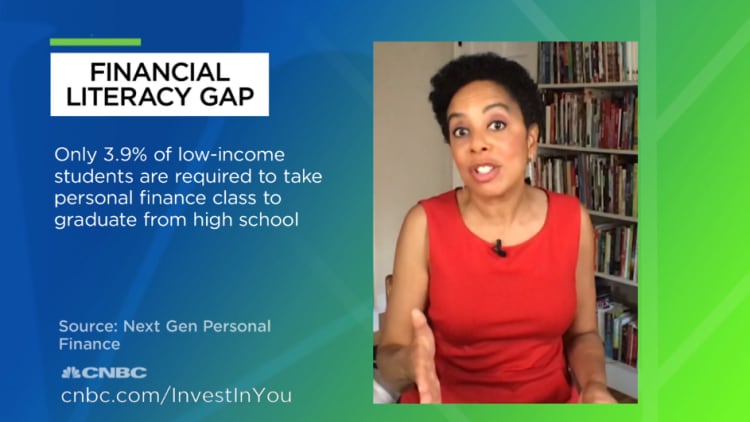Layoffs, furloughs and slashed hours — and this might just be the first round of the devastation the coronavirus can bring to your personal finances.
Half of American households lost income due to the economic effects of Covid-19, according to a Bankrate survey of 3,753 adults fielded in June.
Worries about another coronavirus outbreak hurting household finances are much higher for those who have already taken an income hit (more than 9 out of 10 people surveyed).
"The widespread hit to household income from the pandemic, the length of time for that income to recover, and a pervasive fear of it happening again will all weigh on the economic recovery," said Greg McBride, senior vice president and chief financial analyst for Bankrate in Palm Beach, Florida.
Overall, pay cuts are common at all levels, says Andrew Rosen, a certified financial planner and partner at Diversified Lifelong Advisors in West Chester, Pennsylvania. That's especially true at larger companies, which have used them in an attempt to avoid layoffs.
"You'd see a 10% pay cut at this level, 15% for this one," he said. "The higher the level, the higher the cut."
More from Invest in You:
Not a saver? Learn these skills and end your year with a nice stash
Millennials want Gen Z to learn from their mistakes
If you need cash, try these less-obvious sources
However, it's probably not the time to switch jobs, Rosen says. It may be difficult, but it's better in many cases to hang on and see if things return to normal. Tesla, for one, has begun restoring salaries, and the Mayo Clinic is ending pay cuts and furloughs. It depends on your industry and your company.
"Is your employer making the situation sound temporary, or permanent?" said Brittney Castro, a CFP and founder of Financially Wise Women in Los Angeles. "You may need to wait it out and try to reduce expenses."
If you're not in an especially high-risk group, given your health and age, you might consider other sources of income, she says.
Put everything — expenses, location, mortgage — on the table and see where you can squeeze out some extra cash.
Making the cut
Get a sense of how much your life costs, Rosen says. It never hurts to rein in whatever you can.
Examine what costs you less these days: Rosen fills up his gas tank once a month instead of twice a week, as he used to.
After acting on common recommendations to ditch cable, bottled water and restaurant meals, you might still be able to save some money on certain recurring expenses, Castro says, such as auto insurance and your cell phone plan.
"You may be able to reduce your data package, for example, and lower your phone bill," Castro said.
Relocation
Moving is drastic and you should think it through carefully, says Castro. Consider if your loss in income is temporary or likely to last. If money is tight, you need to factor in how you'll cover the cost.
"Take time to plan out what a move would look like and what it will cost compared to the money you'll save in rent or mortgage by moving," she said.
Rosen agrees that moving is not always the answer. But we could still see a flight from cities, especially as employees who have been working remotely get the OK from their employers to continue doing so.
People may then decide they'd like to live somewhere cheaper. "If they force you to come in once a month, you can stay at nice hotel [and still save on your living costs]," Rosen said.
Lower your interest rate on loans
It could be a great opportunity to refinance your home, Rosen says.
"Chances are, interest rates are lower than when you started," he said.
Even cutting your rate by 1% could make a difference.
This strategy works best, he says, if you return to your older, higher monthly payment when your finances look better. That way, you can make up for the extra time you've taken on with the new mortgage.

SIGN UP: Money 101 is an 8-week learning course to financial freedom, delivered weekly to your inbox.
CHECK OUT: I've been a career coach for 20 years. Here is my best advice for job seekers via Grow with Acorns+CNBC.
Disclosure: NBCUniversal and Comcast Ventures are investors in Acorns.





